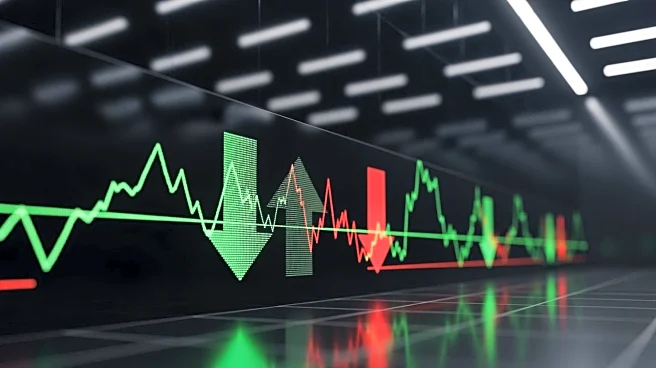What's Happening?
U.S. stock futures remained relatively unchanged following a significant downturn in major indexes. The Dow Jones Industrial Average fell by about 800 points, or 1.7%, marking its worst performance since
October 10. The Nasdaq Composite and S&P 500 also experienced substantial losses, driven by concerns over AI stock valuations and the Federal Reserve's interest rate decision. The tech sector, including companies like Nvidia and Broadcom, faced notable declines. The end of the government shutdown has raised questions about the release of economic data, which could influence the Fed's decision on interest rates.
Why It's Important?
The stability in stock futures suggests cautious optimism among investors despite recent market volatility. The Federal Reserve's interest rate decision remains a critical factor, with expectations for a rate cut in December decreasing. The tech sector's performance is under scrutiny due to high valuations and concerns about an AI bubble. The end of the government shutdown is expected to bring delayed economic data, which could impact market sentiment and the Fed's policy decisions.
What's Next?
Investors are closely watching the Federal Reserve's actions, with the likelihood of a rate cut in December decreasing. The release of delayed economic data could influence the Fed's decision and affect market trends. The tech sector's performance will continue to be a focal point, with potential implications for AI stock valuations and investment strategies.
Beyond the Headlines
The comparison of AI stock valuations to the dot-com bubble suggests potential long-term implications for the tech industry. If the bubble bursts, it could lead to significant losses and a reevaluation of investment strategies in the sector. The government's ability to release economic data post-shutdown will be crucial in providing clarity on the economic outlook and guiding policy decisions.










